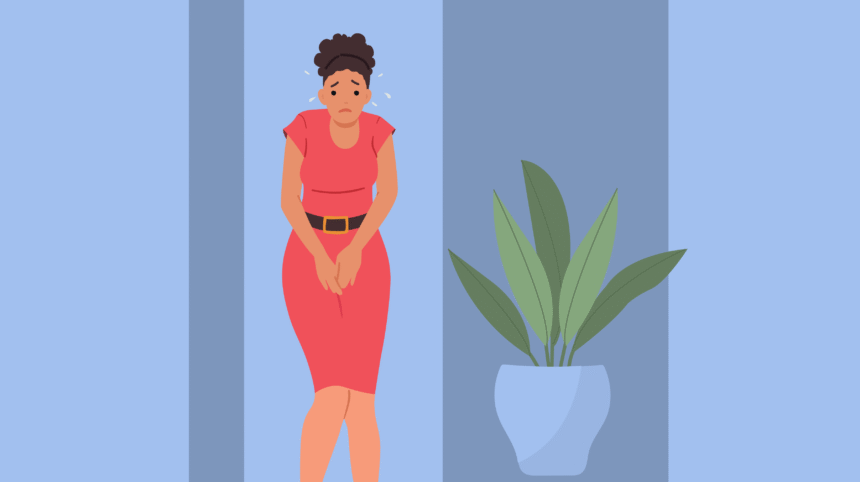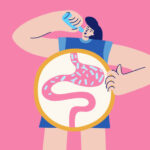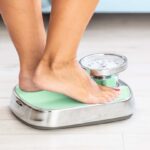Do you end up getting up in the midst of the night time a number of instances to go to the toilet? Waking up ceaselessly in the course of the night time to pee might be extra than simply annoying. It will probably disrupt your high quality of sleep, which accumulates into extended fatigue throughout waking hours, and may be a symptom of a deeper underlying situation.
The time period for frequent nighttime urination is “Nocturia,” or nocturnal urinary frequency. Extreme urination in the course of the daytime is called frequent urination, whereas nocturia refers particularly to utilizing the toilet ceaselessly at night time. Polyuria, which refers to extreme urine quantity, is related to nocturia.
Whereas nocturia charges rise with age (particularly after the age of 60) and may have an effect on all genders, the individuals below 50 most certainly to be affected are girls. One in three adults over the age of 30 makes a minimal of two toilet journeys each night time, and 70% of this affected group report being bothered by this. In a single cross-sectional research of grownup U.S. girls, about 29% reported important nocturia.
What Causes Nocturia?
Anatomical variations between the sexes imply there could also be totally different causes of nocturia in women and men. For instance, girls could also be experiencing nocturia as a result of pelvic organ prolapse after childbirth, whereas males could also be affected by an enlarged prostate. Beneath are some frequent causes of nocturia in girls:
- Excessive blood sugar ranges – A excessive blood sugar stage ends in sugar spilling into the urine and forcing you to pee extra
- Kidney illness – Sure kidney situations trigger the kidneys to supply extra urine
- Excessive blood calcium stage – an imbalance of calcium can get into urine and pull water from the physique
- Urinary tract an infection – Micro organism that will get into your urinary tract can inflame the bladder and drive frequent urination
- Diabetes insipidus – Too little antidiuretic hormone means your physique is unable to carry on to water
- Diuretics – Sure drugs in addition to “water capsules” might trigger the physique to cross extra water
- Edema – Water retention within the legs might transfer to the kidneys after which handed out as urine at night time
- Consuming too many fluids earlier than you go to mattress – Overhydration can lead to frequent nighttime urination
- Consuming alcohol and caffeinated drinks – These substances act as diuretics, forcing you to pee extra at night time
Why Does Sleep Apnea Trigger Nocturia?
Obstructive Sleep Apnea is a situation correlated with overactive bladder signs as a result of they each disrupt sleep patterns and will exacerbate one another. Sleep apnea is a sleep problem outlined by constant respiration interruptions throughout sleep, punctuated by important loud night breathing and gasping for air.
Such pauses in respiration sometimes final from seconds to minutes, recur ceaselessly throughout one sleep session and end in low oxygen ranges and hindered sleep high quality. 50% of sleep apnea victims even have nocturia, as a result of the truth that sleep apnea impacts a hormone known as atrial natriuretic peptide (ANP), inflicting the physique to supply increased ranges of urine throughout sleep.
Sadly, the mixture of sleep apnea and nocturia can severely disrupt somebody’s skill to get the deep REM sleep mandatory for optimum mind well being and negatively influence their general well being and performance. Beneath are some causes of sleep apnea to think about. Should you suppose you endure from sleep apnea, seek the advice of together with your physician for therapy choices.
Widespread causes of sleep apnea:
- Age
- Weight problems
- Gender (males usually tend to develop sleep apnea, however it could even be underdiagnosed in girls)
- Smoking
- Alcohol
- Medical situations similar to diabetes, hypertension, and congestive coronary heart failure
How To Deal with Nocturia
Relaxation is vital. If nocturia is (actually) inflicting you to lose sleep and impacting your high quality of life, it’s best to seek the advice of together with your physician to rule out any potential underlying situations that will require additional therapy, in addition to to chart out a plan of action that reduces your nighttime toilet journeys. They could run diagnostic assessments for situations like diabetes and kidney illness and in addition prescribe life-style adjustments or medicine.
How To Deal with Nocturia Naturally
If you go to your healthcare supplier about nocturia, they might begin by recommending sure life-style adjustments which can be low-risk and may considerably cut back what number of instances you rise up to go to the toilet at night time. Some life-style adjustments for nocturia which you can implement embrace:
- Taking afternoon naps – Your bloodstream absorbs liquid whereas napping, so that you’ll have to make use of the toilet after a nap, doubtlessly decreasing your journeys to the toilet within the nighttime
- Decreasing the quantity of fluids you drink within the night
- Decreasing or eliminating diuretic substances like alcohol and caffeine
- Taking diuretic medicine within the morning or a minimum of six hours previous to mattress to flush your system out
- Elevating your legs when sitting round to help with fluid distribution all through the physique
- Sporting compression shares to help with fluid distribution within the case of edema
- Pelvic ground bodily remedy to strengthen your pelvic ground muscular tissues
- For many who really feel like their bladder doesn’t empty absolutely, the physician might advocate practising a double-void approach earlier than bedtime.
How To Deal with Nocturia Medically
You must at all times seek the advice of together with your healthcare supplier about what drugs could also be inflicting your nocturia in order that they’ll plan accordingly. In sure circumstances, your medical supplier might prescribe drugs to alleviate your signs so you’ll be able to lastly get a correct night time’s relaxation. Beneath are some frequent drugs prescribed to deal with nocturia:
- Diuretics – Medicines like furosemide (Lasix®) and bumetanide (Bumex®) might assist regulate the quantity of urine you produce
- Anticholinergics – These drugs are used to deal with overactive bladder, which is commonly linked to nocturia. As much as 40% of individuals discover that anticholinergics alleviates their signs.
- Desmopressin (DDAVP®) – This medicine helps your kidneys produce much less urine, decreasing the general frequency of day and nighttime urination.












